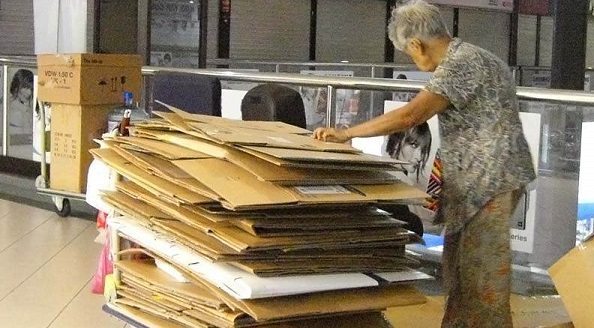SINGAPORE — The Ministry of Social and Family Development (MSF) announced that more low-income families are anticipated to qualify for the government’s primary financial aid scheme, ComCare, with a significant adjustment in the income benchmark set to take effect from the following Monday.
The income threshold has been raised to $800 or less per capita household income a month, an increase from the current benchmark of $650. This marks the first revision of ComCare income benchmarks since 2014, when it was raised from $550.
This move by the MSF arrives after considering factors such as basic living needs expenditure data, projected inflation, and feedback from social service professionals who work with needy families. The ministry reviews the benchmark every two to three years as a part of its ongoing process.
ComCare provides key schemes like the Short-to-Medium-Term Assistance (SMTA) and the Long-Term Assistance Scheme, the latter providing financial aid to those who are destitute, permanently unable to work due to old age, illness, or disability, and lacking income or family support.
As of August 2022, a single-person household under the Long-Term Assistance Scheme receives $640 monthly, a bump from the previous $600. The SMTA, however, offers varying amounts and durations of aid to lower-income families temporarily unable to work or needing help despite earning a low wage.
The per capita household income benchmark indicates the income level at which families may qualify for aid, but it does not automatically grant eligibility for SMTA.
The ministry clarified, “Eligibility for SMTA is based on a holistic assessment by social service offices, and those with income below what they require for their basic needs may qualify. Households are also assessed on factors such as their savings level and the availability of family support.”
The latest ComCare annual report (October 2022) disclosed that 91,105 individuals received help from ComCare schemes in the fiscal year ending 31 March 2022, with $177 million disbursed.
Concerns over ComCare
During the parliamentary debate on President Halimah Yacob’s Speech, Sengkang GRC’s Workers’ Party Member of Parliament, Associate Professor Jamus Lim, suggested an official poverty line that transcends “basic” needs of housing, food, and clothing.
He advocated for a committee comprising representatives from MSF, civil society leaders, and academia to ascertain what the line should be, and that all government assistance, especially ComCare, should be pegged to this line or higher, never lower.
Asst Prof Lim was referred to as a “fxxking populist” by Mr Tan Chuan-Jin, the Speaker of Parliament, after he had made his speech.
The WP MP previously spoke about refining the ComCare system at the Committee of Supply debate, noting that the approval process can sometimes be “intrusive, onerous and demeaning.”
On the other hand, the People’s Action Party MP for West Coast GRC, Mr Ang Wei Neng, discussed President Halimah’s mention of strengthening social safety nets and agreed with the significance of supporting low-income families, particularly those with young children.
He referenced the recent MSF announcement of increased cash assistance under the ComCare Long-Term Assistance scheme and raised concerns about the absence of adjustments to the qualifying criteria for Short-Term Financial Assistance amid high inflation rates over the past two years.
Mr Ang also compared the public social expenditure in cash benefits of other countries with Singapore’s.
He pointed out that MSF’s allocation of about $601 million in its 2023 Budget for long-term and short-term financial assistance to vulnerable Singaporeans, representing about 0.1% of Singapore’s GDP, was small compared to the 3% of GDP that South Korea spent on cash benefits for public social expenditure.
Highlighting the hardships faced by low-income households amid high inflation rates and slow economic growth, Mr Ang suggested a 10% revision to the qualifying criteria for help schemes, which could benefit more families.
He also proposed that all government assistance schemes should include an inflation component to adjust the qualifying criteria and assistance quantum annually in line with inflation.







